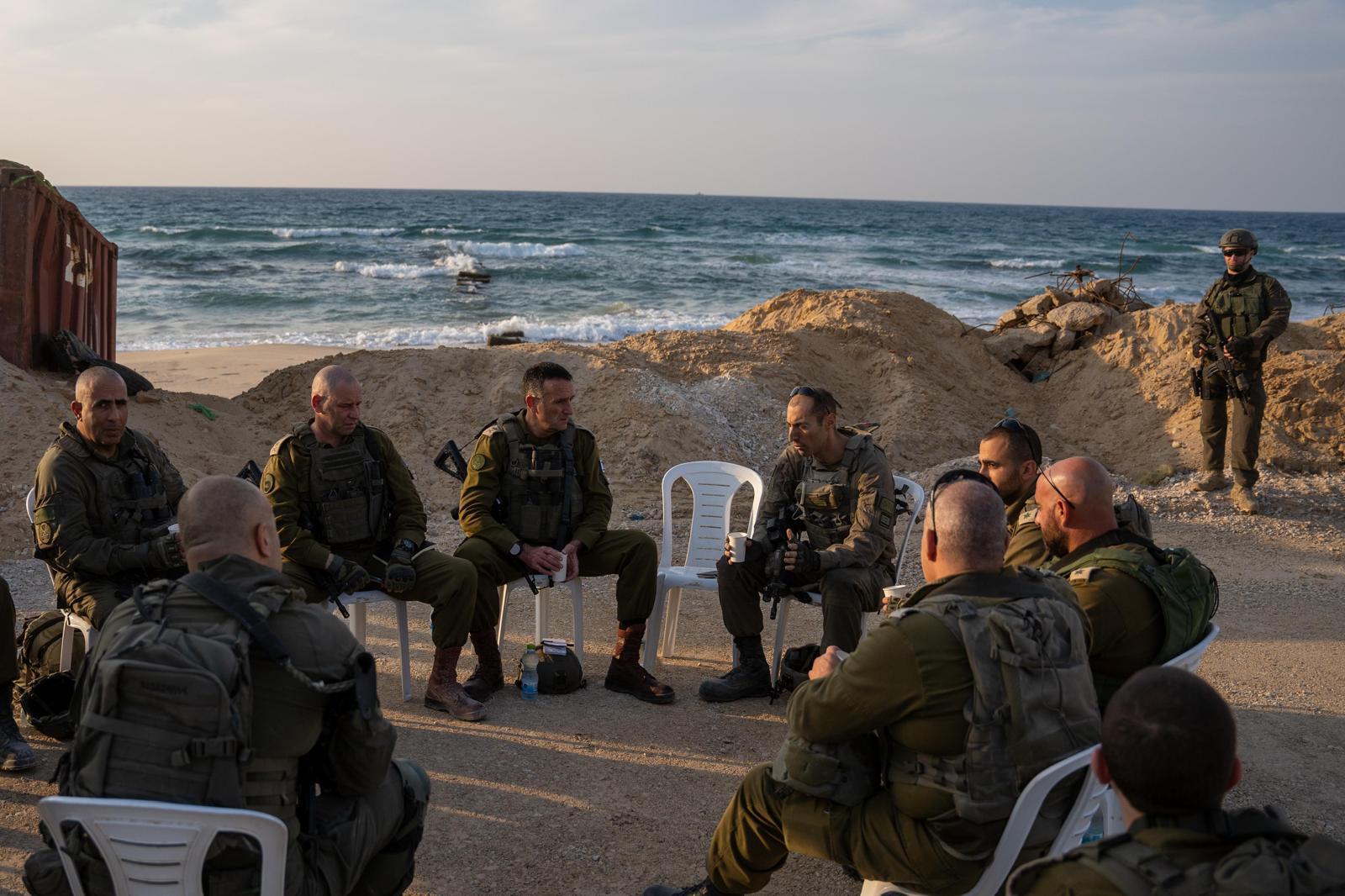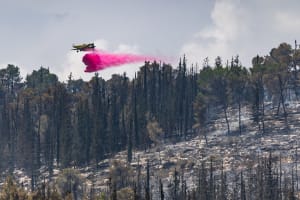‘IDF doesn't tire,’ continues to deal severe blows to Hamas to return the hostages, IDF Chief Halevi says in Jabaliya
Army denies claims of ‘imminent’ famine, prepares to open new aid entry point

As Israeli troops continue to fight Hamas forces holed up in northern Gaza’s Jabaliya and nearby Beit Lahiya, IDF Chief of Staff Lt.-Gen. Herzi Halevi stressed the soldiers’ operations were ensuring the safety of Israel’s civilians and aimed at returning the hostages home.
“With the strength you are displaying here, we are ensuring the safety of our civilians and will bring back the hostages,” Halevi told soldiers while visiting the frontlines in Jabaliya over the weekend.
“We are sending Hamas a very clear message: the IDF does not tire. The more we fight, the stronger we become, gaining more experience, capabilities, professionalism, values, and determination. We are progressing with great intensity. The fact that you are concluding three weeks here with approximately 1,000 terrorists killed and 1,000 terrorists captured is a significant achievement that deals Hamas a severe blow,” Halevi said in a video published by the IDF.
Around a month ago, Israeli forces carried out a surprise, lightning-quick operation to surround and cut off Jabaliya from the rest of the enclave, and have since besieged the area, aiming to systematically eliminate terrorists while encouraging civilians to go to humanitarian zone in the south.
Gaza Strip: A journalist embedded with the IDF traveled into Jabalia on November 5. That a journalist entered the area safely reflects both the heavy concentration of the IDF in the area and the extent to which Hamas has been severely degraded there.
— Institute for the Study of War (@TheStudyofWar) November 9, 2024
- The IDF 900th Infantry… https://t.co/Tp33zw7xnM pic.twitter.com/drqNuxn5tQ
“We are providing the residents near the northern Gaza border with greater security and creating conditions for this security to endure, to not to be fleeting. Reaching an agreement is complex, but with the strength you are displaying here and the powerful way in which the IDF is fighting on seven fronts, in seven arenas, Israel is telling the entire Middle East – there is immense strength here, and incredible capability,” Halevi said.
לוחמי צוות הקרב של חטיבת הנח״ל ממשיכים להילחם ברפיח בפיקוד אוגדת עזה (143), הכוחות חיסלו מחבלים, איתרו אמצעי לחימה והשמידו תשתיות טרור >> pic.twitter.com/BugQZKZfrW
— צבא ההגנה לישראל (@idfonline) November 9, 2024
“From this position of power, we are supporting our civilians and soldiers who are held hostage and are prepared to fight with tremendous determination, as well as pay a price to bring them home. We are not stopping or slowing down; this is to bring back the hostages, to ensure security for the surrounding communities,” the IDF chief concluded.

On Thursday, the IDF said that around 50 more terrorists were killed in Jabaliya in the past 24 hours. In addition, the Kfir Brigade started raiding nearby Beit Lahiya, after intelligence information indicated terrorists and terror infrastructure in the area.
Other IDF operations continued in the center of the strip along the Netzarim Corridor, as well as in southern Rafah.
Meanwhile, the military rejected new claims made by the Famine Review Committee, an independent group of food security experts, that there was a “strong likelihood” of imminent famine in areas of northern Gaza, including Jabaliya.
“Unfortunately, the researchers continue to rely on partial, biased data and superficial sources with vested interests,” the IDF stated, noting that 11 aid trucks entered Jabaliya and nearby Beit Hanoun on Thursday.
The military added that in the past two months, some 39,000 trucks carrying over 840,000 tons of food entered the enclave, including 713 aid trucks that entered northern Gaza via the Erez West Crossing since the start of last month.
In addition, the IDF said it is preparing to re-open the Kissufim border crossing to increase the aid entering the strip, leading to outraged protests by nearby Kibbutz Kissufim.
The kibbutz emphasized that the decision to re-open the crossing was made without prior coordination or information. Eighteen of its members were murdered in the Oct. 7 massacre last year.
“The opening of the crossing without the release of Shlomo Mansour, who was kidnapped on Oct. 7, reminds us all of the bunkers, the tragedies, the murdered, the soldiers and friends who fell defending the settlement.”
“We believe that the opening should be conditioned on the return of the abductees, led by Shlomo Mansour, the oldest of the hostages. To see food trucks passing every day to those who were complicit in the massacre in general and in Kissufim in particular – is a frustrating and painful sight. At the same time, the people of Kissufim, like the whole State of Israel, see humanitarian values as supreme even in this painful hour.”
“It is only important for us to make sure that the passage of the goods before our eyes does not echo the trauma and disrupt the plans to return home quickly these days,” the statement continued. “If the members of the kibbutz feel unsafe – we will act to block the passage.”

The All Israel News Staff is a team of journalists in Israel.














